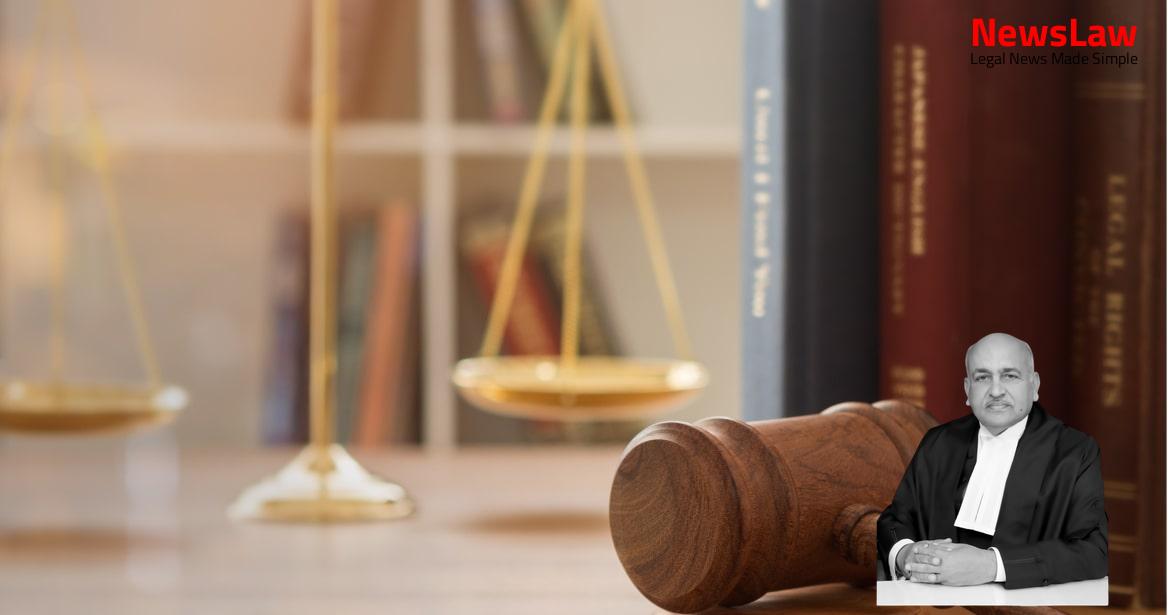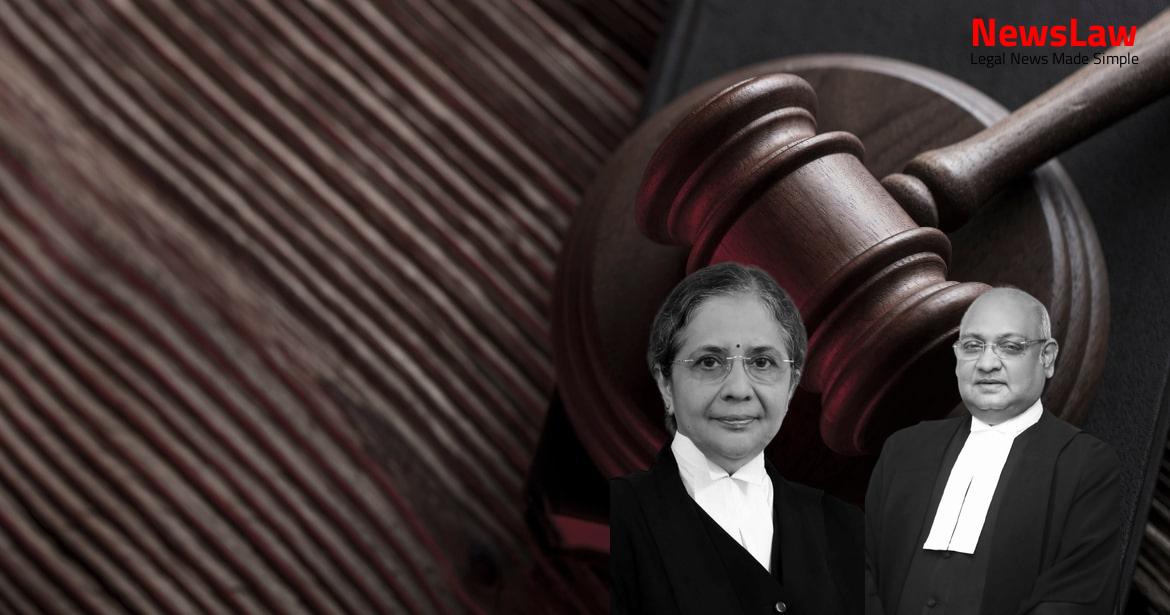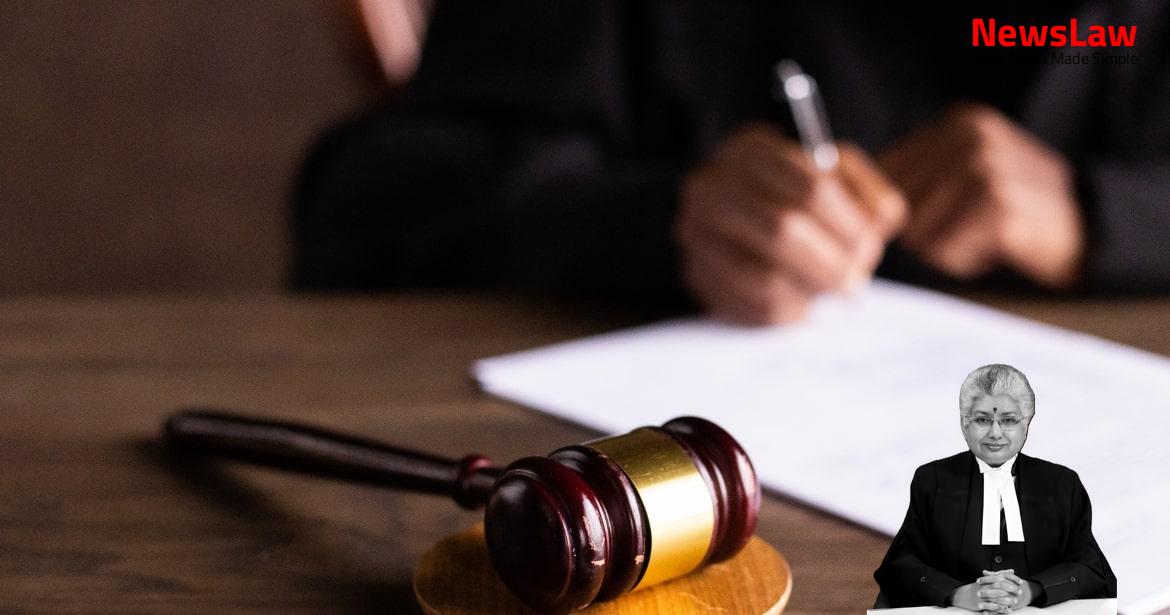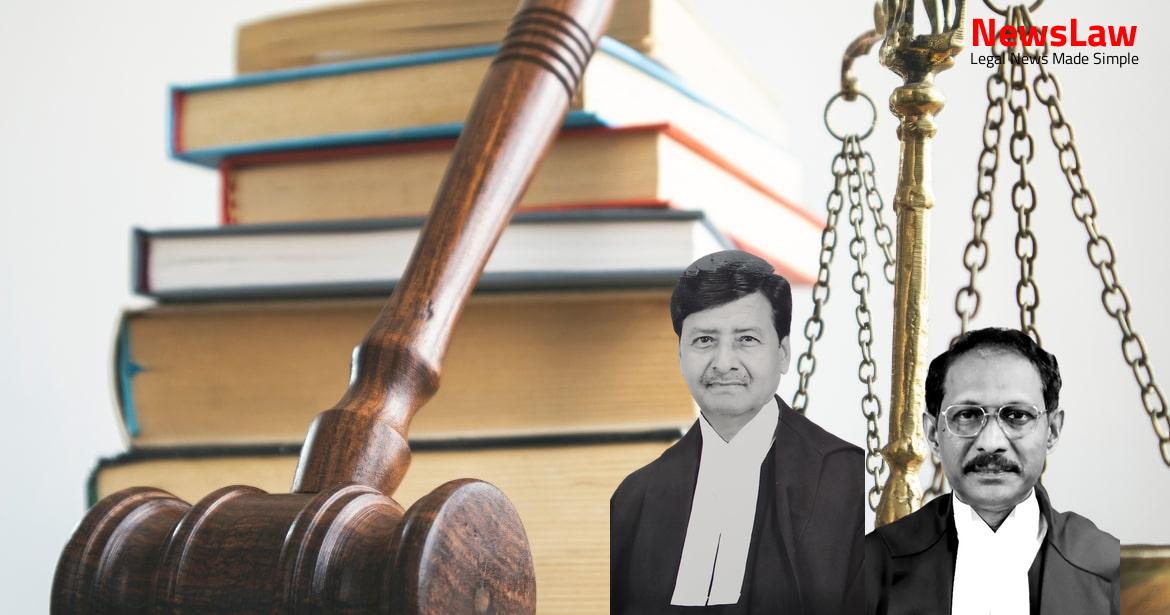A significant development has emerged from the Supreme Court of India in the case involving T.P. Murali and Kerala Agricultural University. The Division Bench’s decision to quash the termination order sheds light on the necessity of adhering to statutory disciplinary procedures. Let’s delve into the details of this crucial judgement and its implications. #SupremeCourt #LegalCase
Facts
- Division Bench allowed the writ appeal
- Quashed the termination order against T.P. Murali
- Refused to direct for reinstatement due to attaining superannuation during litigation
- Set aside the judgment in Writ Petition No.17803 of 2021
- Quashed the order terminating services passed by the Vice Chancellor
- Division Bench found university did not follow prescribed disciplinary procedure
- Division Bench noted respondent was genuinely prevented from resuming duties
- The respondent, T.P. Murali, joined Kerala Agricultural University as Assistant Professor in 1988.
- He took a 20-year Leave Without Allowance (LWA) from 1999 to 2019 to work in the USA.
- Upon his return in 2020, he was not allowed to rejoin and was issued a Memo of Charge for unauthorized absence.
- Despite expressing his intention to rejoin, he did not resume duties citing health reasons and COVID-19.
- The explanation provided for his illness and COVID-19 was deemed unacceptable, leading to the non-condonation of his overstay on leave.
Also Read: Gala v. Ramani: Easementary Rights Dispute
Analysis
- Rule 15 of the Kerala Civil Services (Classification, Control and Appeal) Rules, 1960 provides for the procedure for imposition of major penalties including termination.
- The rules require recording a prima facie satisfaction before holding a disciplinary inquiry against a delinquent employee.
- In the case at hand, there was no evidence of such satisfaction being recorded before initiating the inquiry process and termination.
- The respondent expressed intent to resume duties post leave, citing health issues and travel restrictions due to COVID-19.
- No extension of the leave period was permissible under the rules.
- The Division Bench upheld the importance of following statutory procedures in disciplinary matters, leading to setting aside of the lower court’s order.
- The relevant rules, including Rule 24A and Clause 6 of Appendix XIIA, dictate the procedures for conducting disciplinary inquiries and providing show cause notices to the delinquent employee.
- Rules regarding leave without allowances for taking up employment in certain sectors do not apply to those employed in Public Sector Undertakings, Aided Schools, Private Colleges, or organizations substantially owned or aided by the government.
- An officer who has availed leave without allowances for a total of 20 years and does not return to duty immediately after the expiry of the leave may have their service terminated.
- The maximum total period of leave that can be sanctioned to an officer during their service is 20 years, and it cannot go beyond twelve months before their superannuation.
- Specific procedures must be followed when imposing major penalties on a Government Servant, including framing definite charges and conducting inquiries.
- If an officer avails themselves of leave without allowances for employment abroad or in the country for a total of twenty years and does not return to duty immediately after the expiry of the leave, their service may be terminated following the Kerala Civil Services (Classification, Control and Appeal) Rules, 1960.
- Rules for the grant of leave without allowances for taking up employment abroad or within India include provisions for inquiries and defense statements by the Government Servant.
- Rule 15(2)(a) of the Kerala Civil Services (Classification, Control and Appeal) Rules, 1960, requires the satisfaction of the disciplinary authority before holding a formal inquiry against a delinquent employee.
- The Government servant may, upon request, be permitted to access records pertaining to their case for the purpose of preparing a written statement, subject to certain conditions and refusals based on relevance and public interest.
- The respondent’s credibility is supported by his emails and medical papers on record.
- Based on the facts and circumstances, the petition is devoid of merit.
- There is no necessity to exercise discretionary jurisdiction under Article 136 of the Constitution.
Also Read: Navigating Limitation Laws: A Case Study on Justice and Statutory Constraints
Decision
- The Special Leave Petition has been dismissed
- Observations have been made in the judgement
Also Read: Conviction Set Aside: Court Grants Benefit of Doubt in Assault Case
Case Title: KERALA AGRICULTURAL UNIVERSITY Vs. T. P. MURALI @ MURALI THAVARA PANEN (2024 INSC 658)
Case Number: SLP(C) No.-020817 – 2022



